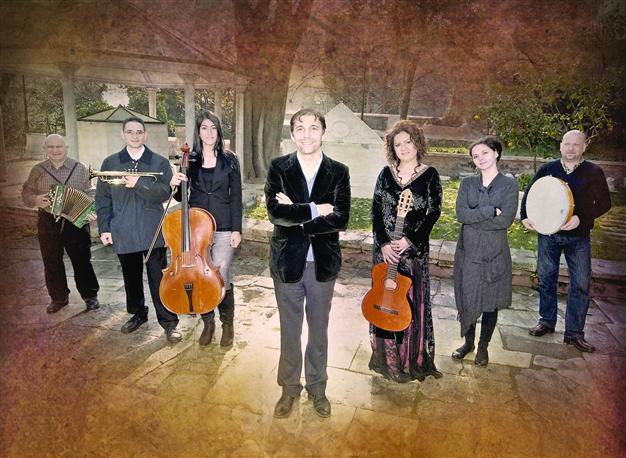Anatolian philosophers' doctrines converted into music
ANKARA - Hürriyet Daily News

The aim of the Rumi Project (above) is to combine the philosophy of Rumi with ethnic sounds, having brought together six Turkish and two English poems from Rumi with ethnic jazz music in a spiritual musical show.
Helding the philosophy of some of Anatolia’s most beloved mystics with more modern sounds including jazz and classical Turkish music, the Rumi Project is a new musical group set for a series of concerts that will be multilingual in addition to bending genres.
The aim of the band is to combine the philosophy of Rumi with ethnic sounds, having brought together six Turkish and two English poems of Rumi with ethnic jazz music in a spiritual musical show.
According to Akan Taşkolu, creator of the unique project which began in 2009, the initial aim was to set Rumi’s works to music. With time, he discovered other Anatolian philosophers such as Shams Tabrizi, Yunus Emre and Hacı Bektaş Veli, who lived in Anatolia during the 13th century.
“The project became a very magnificent one with these 13th-century philosophers,” Taşkolu said.
The band’s first album, “Separation,” contains many modern and jazz-fusion tunes along with spiritual music in a total of eight works. The words are by Rumi and the music by Taşkolu. Produced within the format of Western music, Taşkolu said there were many examples of Western music formats in the production but that classical Turkish instruments produce the sounds. As such, some songs reflect an Irish musical style, another is jazz or Latin, while an up-tempo song is followed by a classical Turkish melody. The group has also drawn attention for performing numbers that change mid-song.
The production and arrangements are handled by Taşkolu, who is supported by a band of eight members with Çağdaş Yamen and Müge Sarıkurt as soloists. Guitarist Muzaffer Güner, accordionist Edward Aris, cellist Nigün Dülger, percussionist Halil Zünbüloğlu, trumpeter Ari Aris and violinists Turay Dinleyen and Aydan Tunalı all contributed to the album, which also features famous reed artist Suren Asaduryan as a guest performer.
Each member of the band is a professional musician that each continue to perfect their core musical styles while contributing to the project.
Philosophical approach of RumiAccording to experts, Rumi was an evolutionary thinker in the sense that he believed that the spirit after devolution from the divine ego underwent an evolutionary process by which it comes nearer and nearer to the same divine ego. All matter in the universe obeys this law and this movement is due to an inbuilt urge (which Rumi calls “love”) to evolve and seek enjoinment with the divinity from which it has emerged. Evolution into a human being from an animal is only one stage in this process. The doctrine of the fall of Adam is reinterpreted as the devolution of the ego from the universal ground of divinity and is a universal, cosmic phenomenon. For Rumi, God is the ground as well as the goal of all existence.
However, Rumi need not be considered a biological evolutionary creationist. In light of the fact that Rumi lived hundreds of years before Darwin and was not interested in scientific theories, it is probable to conclude that he did not deal with biological evolution at all. Rather, he was concerned with the spiritual evolution of a human being and believed that man not conscious of God was akin to an animal and that true consciousness made him divine.
English academic Reynold Nicholson has called this a Neo-Platonic doctrine, in the sense of the universal soul working through the various spheres of being, and one introduced to Islam by Muslim philosophers like al-Farabi and related to Avicenna’s idea of love.
